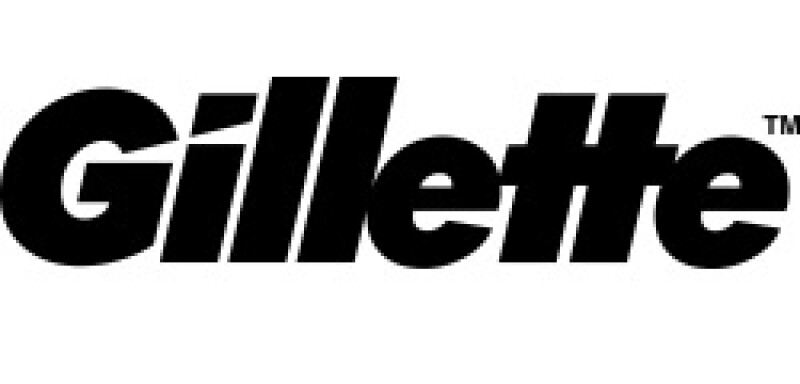Also on the blog this week:
The calm after the US patent litigation storm
What effect will the TPP have on your country?
The best lawsuit a man can get?
Gillette is suing Dollar Shave Club for the “unauthorised use of patented technology”, reports Financial Times.

Procter & Gamble-owned Gillette is the market leader for razors globally but has lost 4.3 percentage points of market share in recent years, as a result of shaving clubs such as Dollar Shave Club.
Gillette launched its own shave club this summer, and holds a 21% share of the online shaving market compared with Dollar Shave Club’s 54%.
The FT quoted Deborah Majoras, chief legal officer at P&G, saying: “Our patents help protect the many technical advancements we’ve made through the years – and when it becomes necessary, we take action to protect these important assets.”
fitbit20jawbone.jpg Staying fit
The parent of fitness tracking wearable devices Jawbone has requested a stay of its own patent infringement case against Fitbit, which The Recorder reports is a first.
"This has been odd to me," Judge Haywood Gilliam of the Northern District of California said at a recent hearing. "On the one hand we have the plaintiffs invoking the court's jurisdiction, and then immediately seeking a stay in favour of a later-filed ITC action."
It is the defendant that normally wants the stay, not the plaintiff. Judge Gilliam told AliphCom’s lawyer, Susman Godfrey’s Joseph Grinstein, that he had not been able to find any cases involving the plaintiff filing then seeking to stay its own case in favour of an ITC action.
AliphCom has filed three suits against Fitbit this year – the patent infringement suit, the ITC action and a trade secrets suit in the San Francisco Superior Court – with Fitbit also filing its own law suit against Jawbone.
Who’s on First? suit is baseless
A federal judge has thrown out a copyright case filed by the heirs of Abbott and Costello against the producers of Broadway play “Hand to God”, reports The New York Times.
In the play, the lead character uses a sock puppet to perform the comedians’ “Who’s on First?” routine. The copyright holders sued the producers and promoters of the play for copyright infringement.
“The complaint doesn’t get past first base,” Judge George Daniels of the Southern District of New York wrote when dismissing the suit. The judge said the use was transformative and assumed the audience recognises the original source.
The main character in “Hand to God” performs a minute excerpt of the routine with a sock puppet to impress a girl, before admitting it is a routine from the 1950s. The character Jason is a shy personality who expresses his dark inner nature through the sock puppet.
“While the routine, as performed in the play, also results in comic relief for the audience, it does so for reasons different from why audiences found the original sketch humorous,” Daniels said.
The play’s lead producer Kevin McCollum had previously described the lawsuit as a “stunt”.
An early birthday present
A class action lawsuit over the copyright of “Happy Birthday” has been settled, reports Los Angeles Times. This follows a federal judge in September ruling that Warner/Chappell did not own the copyright to the song.
On December 9, Judge George King of the Central District of California vacated the trial after the parties agreed to settle the case.
The terms of the settlement were not disclosed but the LA Times quoted a source with knowledge of the settlement saying the entire case addressing the validity of the copyright and potential damages owed had been resolved and there were no further appeals.
Among the parties agreeing to the settlement were the Association for Childhood Education International, a designated charity of the Hill family that receives a third of the profits from the licensing of the song. The association and the Hill Foundation had both asserted that they were the true owners of the lyrics since the ruling in September against Warner/Chappell.
The LA Times said: “If the settlement does in fact stipulate that the parties give up all claims to the song, it is unlikely that any other entity could credibly claim ownership of the song.”
Prolonging a patent’s litigation life
Bloomberg ran an interesting piece this week noting a trend of US courts seeing a “rash of lawsuits” involving old and sometimes expired patents.
The piece referenced RPX data saying that half of all patents involved in lawsuits in 2014 date back to the 1990s, and most of the rest are from the early 2000s.
Xerox, Nokia, Cypress Semiconductor, Micron, General Electric, Hewlett Packard and Boston Scientific ae among the companies that have sold patent later used in litigation, according to RPX.
Three companies that own patent sold by Xerox – Genaville, Loramx and Oberalis – were in the top 10 biggest filers of patent lawsuits in the US in the first half of this year.
In our news and analysis this week:
Managing IP’s International Women’s Leadership Forum 2015: round up
Copyright Royalty Board raises Pandora rate 21% for ad-supported streaming
PTAB issues first decision on remand from Federal Circuit
MIP European Patent Forum USA 2015: Key takeaways from Silicon Valley
Get ready for trade mark changes in Europe
Economic cost of toy and game counterfeiting revealed
Patent and trade mark filings rise, but design applications fall - WIPO data
Takeaways from our European Patent Forum USA
The long-term effects of the new US FRCP litigation rules
Can you keep a (trade) secret?









